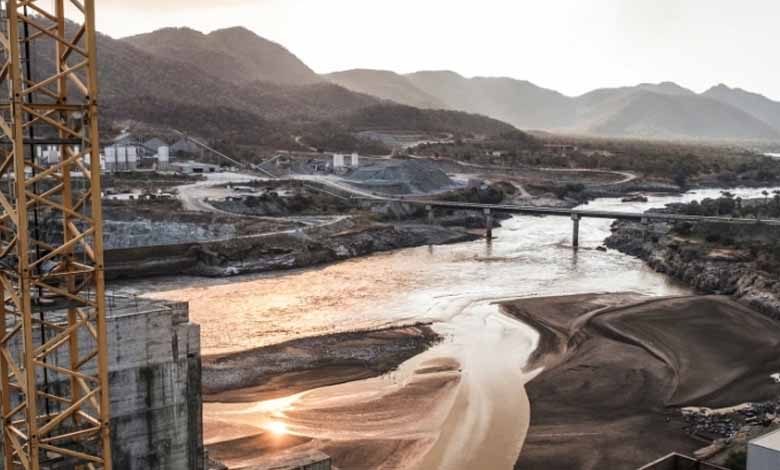Sudan blamed Ethiopia of delaying Dam discussions

Sudan has defined all situations in dealing with the present Grand Ethiopian Renaissance Dam (GERD) crisis, indicating that it has studied all probable choices to protect its security in harmony with international laws.
Indeed, Egypt, Ethiopia, and Sudan finished their gatherings in Congo, the current president of the African Union (AU), to launch again the blocked negotiations with no development because of the continuing differences.
The refuses of Ethiopia
The Sudanese delegation stated in a statement that Ethiopia had determinedly refused all alternative options and negotiations provided by Sudan to offer a role to international partners including the UN, the AU, the EU, and the US in helping negotiation and mediation.
On his part, Sudan’s Minister of Irrigation, Yasser Abbas, declared that the gathering unsuccessful to attain a deal after that Ethiopia refused all the suggestions submitted by Sudan and Egypt.
He also showed in a press conference in Khartoum, a suggestion presented by the Egyptian delegation to forgo mediators and observers provided with condition of reaching a legal and binding agreement within eight weeks. He also blamed Ethiopia of delaying the discussions to take more to complete the second filling of the dam without attainment of a deal.
South Africa as a mediator
Otherwise, Ethiopia suggested, during the Kinshasa gatherings, South Africa as a mediator, and it was agreed as one of the observers’ countries, however; Addis Ababa refused the UN as a new party, indicating that Khartoum prepares to intensify the situation politically in organization with the Foreign Ministry, the government, and local authorities.
The Minister also explained that Sudan would seize one billion cubic meters in the Roseires dam as a precaution in case of water shortages. It also noted that for the first time Sudan would took a third of the storage capacity of Jabal Awliya dam as a precaution in case of major shortage in water levels in July.
Addis also asserted improving the role of the African Union, affirming that if the other parties not participate in the mediation, the negotiations would not give any result.
4.9 billion Cubic meters
In 2020, Addis Ababa declared that it had finished the first phase of filling the dam, attaining its target of 4.9 billion cubic meters, which permitted the evaluation of the first two turbines of the dam. But, this year, it aims to fill an additional 13.5 billion cubic meters.
The dam that was established in northwestern Ethiopia near the border with Sudan has been a source of tension since the beginning of the construction in 2011.
Moreover, Egypt and Sudan have the intention to reach a tripartite deal on operating the dam before starting the filling. However; Ethiopia declares that this operation is an integral part of the construction and could not be suspended.
Ethiopia’s Minister of Water, Irrigation, and Energy Seleshi Bekele stated on On Tuesday that country has begun the operation of the second filling of the dam without any intended postponement.
Bekele showed, during a press conference, regret that Egypt and Sudan want the negotiations with the participation of observers other than the AU that is based in Addis Ababa.












